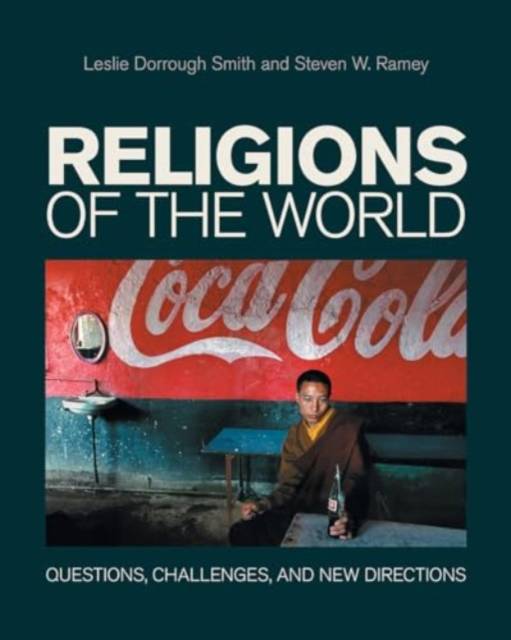
Door een staking bij bpost kan je online bestelling op dit moment iets langer onderweg zijn dan voorzien. Dringend iets nodig? Onze winkels ontvangen jou met open armen!
- Afhalen na 1 uur in een winkel met voorraad
- Gratis thuislevering in België vanaf € 30
- Ruim aanbod met 7 miljoen producten
Door een staking bij bpost kan je online bestelling op dit moment iets langer onderweg zijn dan voorzien. Dringend iets nodig? Onze winkels ontvangen jou met open armen!
- Afhalen na 1 uur in een winkel met voorraad
- Gratis thuislevering in België vanaf € 30
- Ruim aanbod met 7 miljoen producten
Zoeken
Religions of the World
Questions, Challenges, and New Directions
Leslie Dorrough Smith, Steven W Ramey
Hardcover | Engels
€ 156,45
+ 312 punten
Uitvoering
Omschrijving
Religions of the World: Questions, Challenges, and New Directions provides a critical introduction to the social, political, and cultural interests that inform how people describe and identify with religion. One of its goals is to provide a sense of methodological transparency that few, if any, other textbooks today offer. The book opens with an Introduction that discusses contemporary methodological concerns in the study of religion, with special focus on the World Religions Paradigm. This is followed by ten chapters, six (6) of which discuss a distinct religion and four (4) of which discuss regional traditions. This organization is intentional and self-conscious, as the authors discuss how these scholarly categories (distinct tradition vs. regional tradition) shape the ways that both insiders and outsiders discuss, practice, and engage religion in their daily lives. Each chapter introduces four different popular descriptions, or representations, of a particular religion or regional tradition. Following each representation is an analysis of what this representation accomplishes for those who promote it and what (or who) it also leaves out. Following this, a specific case study provides a real-world example of the difficulties in thinking about religion in overly simplistic ways. The text does not attempt to diminish or reconcile the possible contradictions between the different representations so as not to leave the reader with the idea that one representation is more correct or authentic than another, or that all four can be easily stitched together to make a tidy picture. Instead, students take away from each chapter a foundation of knowledge about the practices, issues, and conceptions that are associated with global religious traditions as well as the complexity behind any single representation. The objective is to make more transparent the human activity of constructing religion as well as the contemporary consequences of these representations, as people use them to legitimize identities and negotiate for social, legal, and economic resources. Thus, throughout the text, students are challenged to interrogate who gets to decide on a particular portrayal of a religious tradition as well as the interests informing those decisions. An Afterword also discusses ways that the skills learned in the text have applicability beyond the study of religious discourses.
Specificaties
Betrokkenen
- Auteur(s):
- Uitgeverij:
Inhoud
- Aantal bladzijden:
- 320
- Taal:
- Engels
Eigenschappen
- Productcode (EAN):
- 9781800503755
- Verschijningsdatum:
- 1/01/2024
- Uitvoering:
- Hardcover
- Formaat:
- Genaaid
- Afmetingen:
- 254 mm x 320 mm
- Gewicht:
- 993 g

Alleen bij Standaard Boekhandel
+ 312 punten op je klantenkaart van Standaard Boekhandel
Beoordelingen
We publiceren alleen reviews die voldoen aan de voorwaarden voor reviews. Bekijk onze voorwaarden voor reviews.











